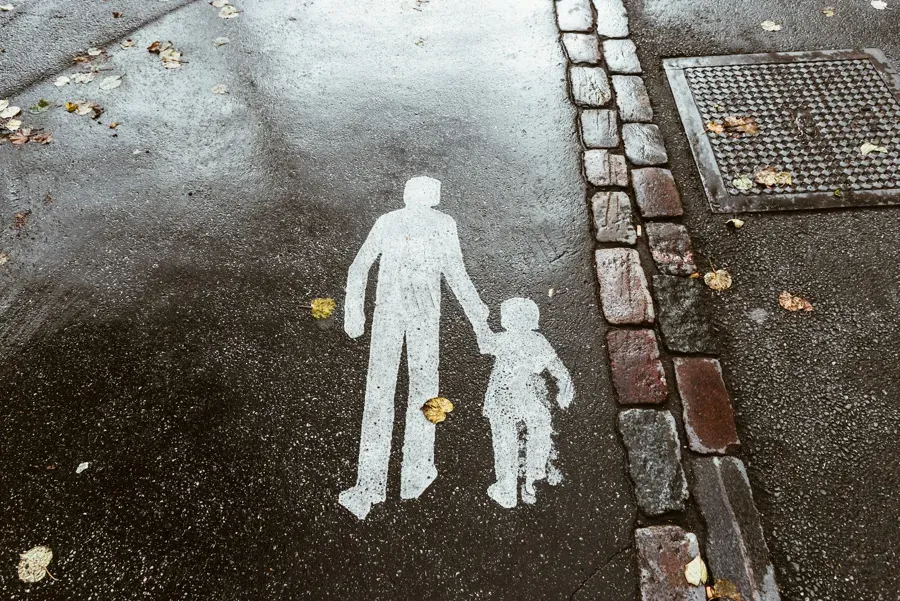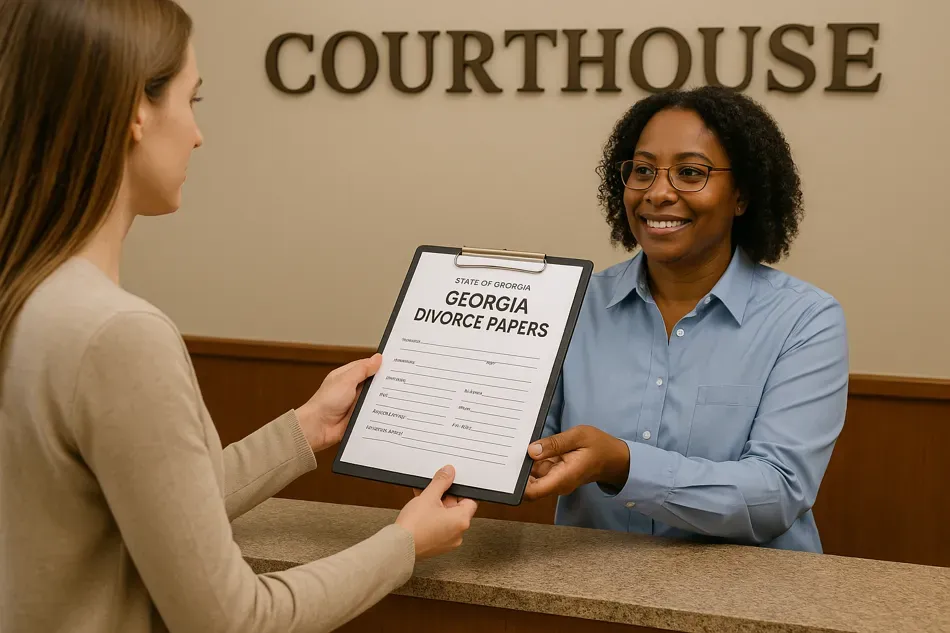Practice Areas
Blog Categories
How to Change a Last Name After Divorce in Georgia
Sure, you can change your name on social media and even change what you sign for certain things. However, if you changed your name to your partner’s name for your marriage, then it is still your last name when the marriage is terminated.
Some people choose to keep their married last name — even after the divorce — for continuity and ease if their children still have the other last name. There are, however, many other reasons that people choose to change their official last name back to their maiden name.
If you’re in the Atlanta area and are going through a divorce, then the divorce attorneys at The Fairell Firm can help. Keep reading to learn more about changing a last name after a divorce or remarriage, and then contact The Fairell Firm today to work with a divorce attorney in Atlanta. We’re conveniently located in Tucker.
The Short Answer: Changing Your Last Name After a Divorce in Georgia
In Georgia, you can restore a former last name during the divorce process by requesting it in your
divorce papers. If your divorce is already finalized and didn’t include a name change, you’ll need to file a separate petition with the Superior Court in your county. Both options are legally valid.
Changing Your Name During Divorce Proceedings
The easiest time to change your last name is while your divorce is still in progress. Georgia law (O.C.G.A. § 19-5-16) allows either spouse to request a name change as part of the divorce proceedings. If granted, the final divorce decree will include an order restoring your previous name, making the process seamless.
To ensure your name change is processed correctly:
- Include the request in your divorce paperwork – Either in the initial complaint (if you’re filing for divorce) or in your response (if you’re the respondent).
- Confirm that the final decree includes the name change – If approved, the judge will explicitly state the name change in your divorce order.
- Obtain a certified copy of the decree – You’ll need this legal document to update your driver’s license, Social Security records, and other identification.
If your goal is to reclaim your maiden name or a prior last name, requesting it during the divorce process saves time and avoids additional court filings later. However, if your divorce is already finalized and your decree does not include a name change, don’t worry—you still have legal options. The next section explains how to change your name after your divorce is complete.
Name Change After the Divorce Is Finalized
If you didn’t change your name during the divorce process but would like to after the divorce is finalized, then all is certainly not lost. According to GeorgiaGov, you’ll need to submit a petition to your local Superior Court describing why you’d like to change your name (e.g. you have recently been divorced). Once the court approves your request, you’ll need to update your driver’s license (within 60 days of the name change), your Social Security card, and your passport.
After all legal documents reflect the name change, you’ll also need to contact your bank, insurance companies, etc. to correct your name with those businesses as well.
Name Change With a Remarriage
If you remarry after your divorce, then you can take your maiden name, take your new spouse’s name, or keep the name used during your previous marriage if you so choose.
Updating Personal Records and Identification
Once you have a certified copy of your name change order, the next step is updating all of your legal documents and accounts. It may take some time to work through each agency, but getting everything updated ensures your new name is recognized everywhere it matters.
Social Security Administration (SSA)
Start with the SSA, as many other institutions require an updated Social Security record before they’ll process changes. You’ll need:
- A completed SS-5 form (available on the SSA website).
- Your certified court order or divorce decree (if it includes your name change).
- A government-issued ID (such as your driver’s license or passport).
Georgia Driver’s License
Georgia law requires you to update your driver’s license within 60 days of a name change. Visit the Georgia Department of Driver Services (DDS) with:
- Your court order or divorce decree confirming the name change.
- Your current driver’s license.
- Proof of residency, such as a utility bill or lease agreement.
Other Important Updates
From there, notify your bank, employer, insurance providers, and voter registration office of your new name. If you have a passport, you’ll need to submit a form to the U.S. State Department, which varies based on how recently your last passport was issued.
Taking care of these updates ensures a smooth transition, helping you move forward without unnecessary complications.
Impact on Professional and Personal Identity
A name change is more than just paperwork—it can shape your personal and professional identity in ways you might not anticipate. Whether you’re reclaiming your maiden name or adopting a new one, it’s worth considering how this shift will affect different aspects of your life.
Professional Considerations
If you have professional licenses, certifications, or memberships, updating your name is essential. Many licensing boards and professional organizations require an official name change request, often accompanied by a certified court order. If your career involves public recognition—such as law, medicine, or business—you may also need to update business cards, websites, and professional networks.
For those with long-standing professional reputations tied to a married name, the decision can be more complex. Some choose to keep their married name for continuity, especially if their name is attached to published work, business ownership, or established client relationships.
Personal Considerations
Beyond legal documents, a name change can feel like a fresh start. Some people embrace the opportunity, while others struggle with the emotional weight of leaving a former name behind. If you’re navigating divorce and all the changes that come with it, be patient with yourself—adjusting to a new identity takes time.
Special Considerations
While changing your own last name is relatively straightforward, other legal matters—such as children’s last names and property ownership—can add extra layers to the process.
Children’s Last Names
A parent’s name change does not automatically extend to their child. If you want to change your child’s last name after a divorce, you must file a separate petition with the court. In Georgia, both parents typically must agree to the change. If the other parent objects, you’ll need to demonstrate that the change is in the child’s best interest. Courts consider factors like the child’s relationship with both parents and the potential impact on their well-being.
Property and Legal Documents
If you own property, have a will, or share financial assets, updating your name on these documents is crucial. Some legal contracts and deeds may require additional paperwork, and failing to update them could create confusion down the road.
The goal is to ensure your name is consistent across all legal and financial records, reducing the risk of administrative headaches in the future.
Common Mistakes and How to Avoid Them
Changing your last name should be a smooth process, but small missteps can cause unnecessary headaches. Here are a few common mistakes we see—and how you can avoid them.
- Forgetting to request the name change during your divorce – If you're going through a divorce, include the request in your divorce papers to save yourself from filing a separate petition later.
- Not obtaining enough certified copies – Many agencies require an official court order, so get multiple copies upfront.
- Missing deadlines – Agencies like the Georgia Department of Driver Services have time limits for updating your identification. Waiting too long can lead to fines or complications.
Taking these precautions will save you time and stress.
Final Thoughts on Changing Your Last Name After a Divorce in GA
Changing your last name after a divorce is a personal decision, but the legal process doesn’t have to be complicated. Whether you handle it during your divorce proceedings or file a separate petition afterward, following the correct steps will ensure a smooth transition.
Once your name change is legally approved, take the time to update all your important documents and accounts. While it may feel like a tedious process, getting everything in order now will save you from future headaches.
If you’re navigating this alongside issues like
child support or property division, remember—you don’t have to go through it alone. Reliable legal guidance can make all the difference.









